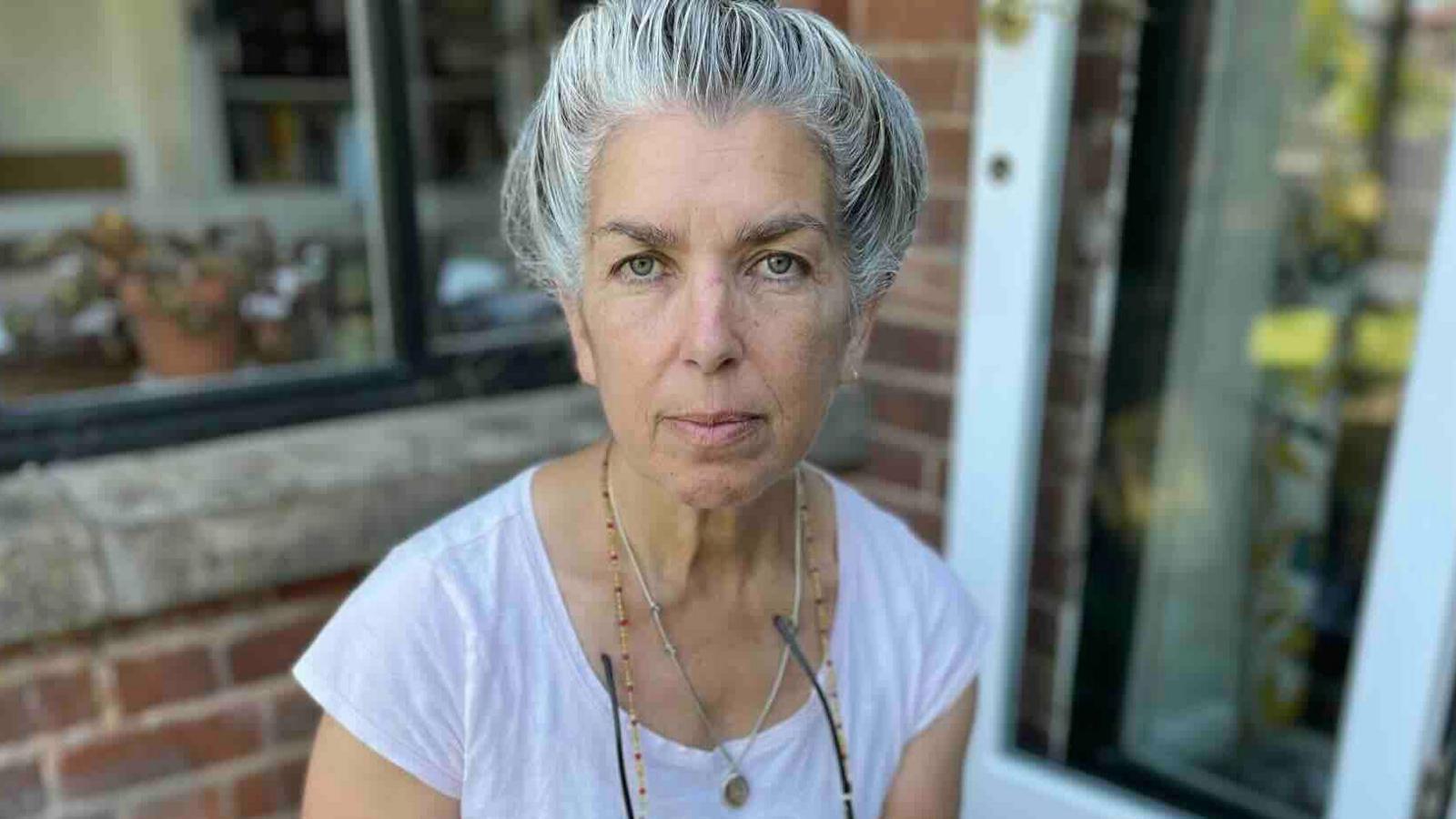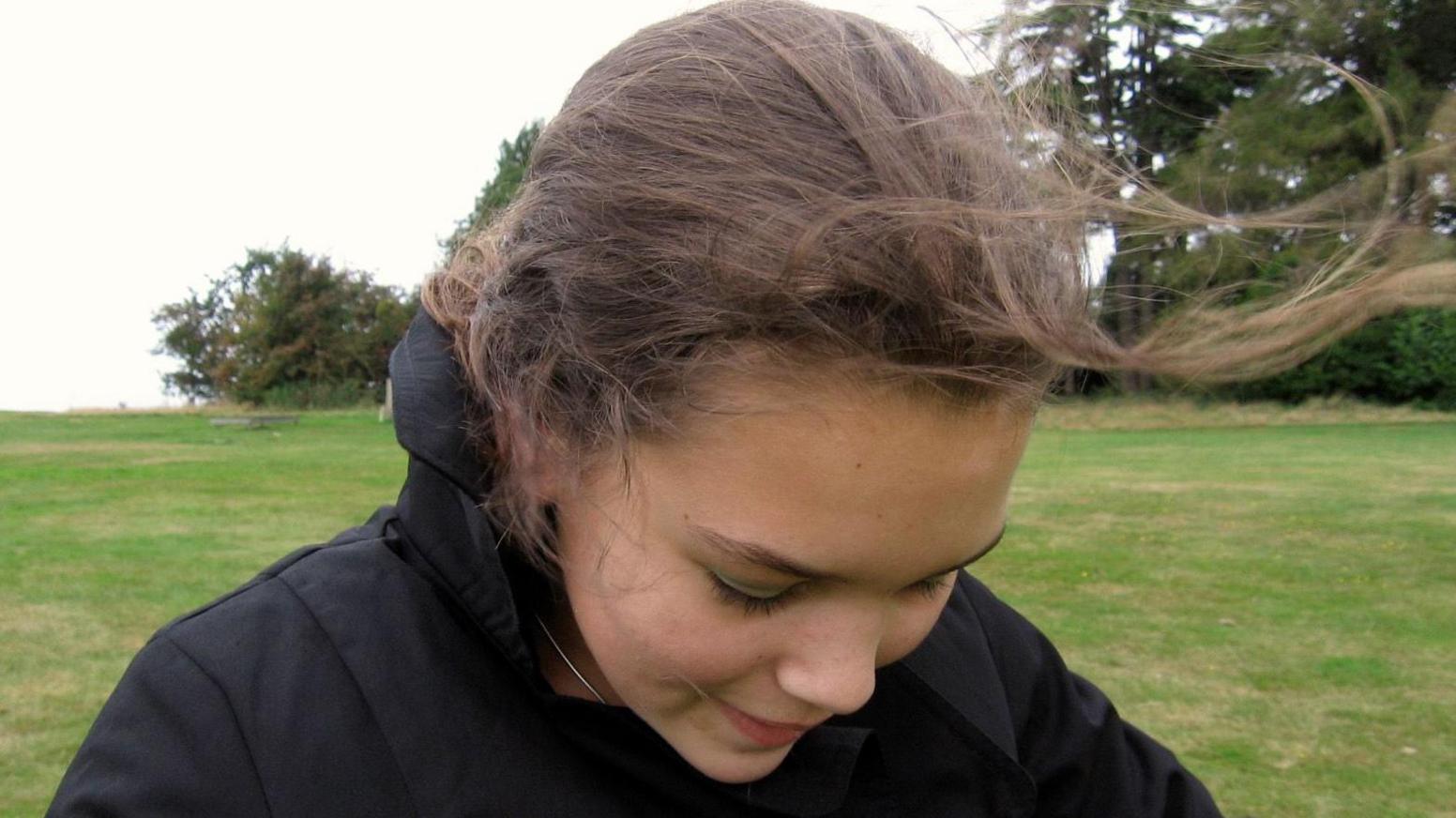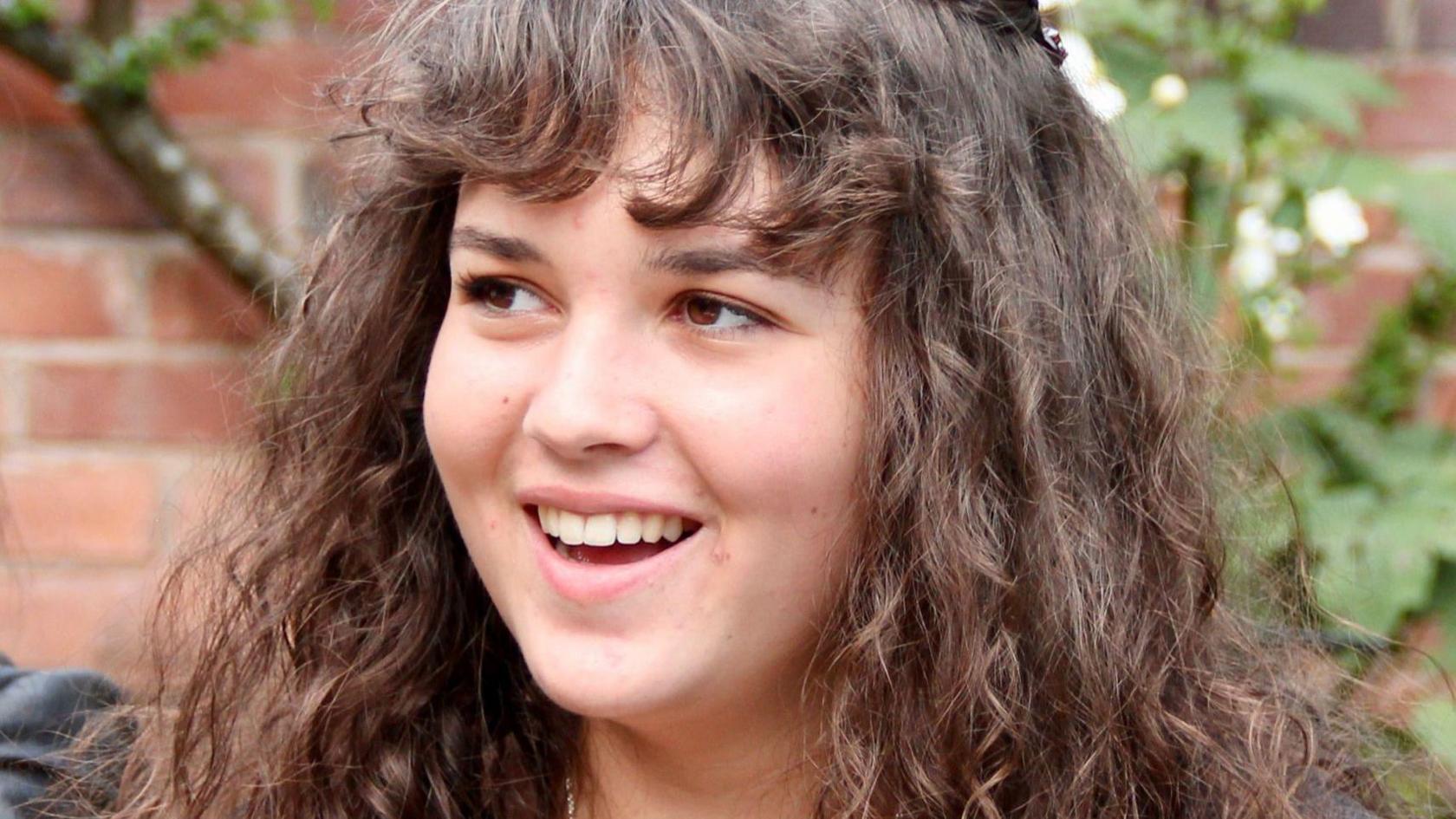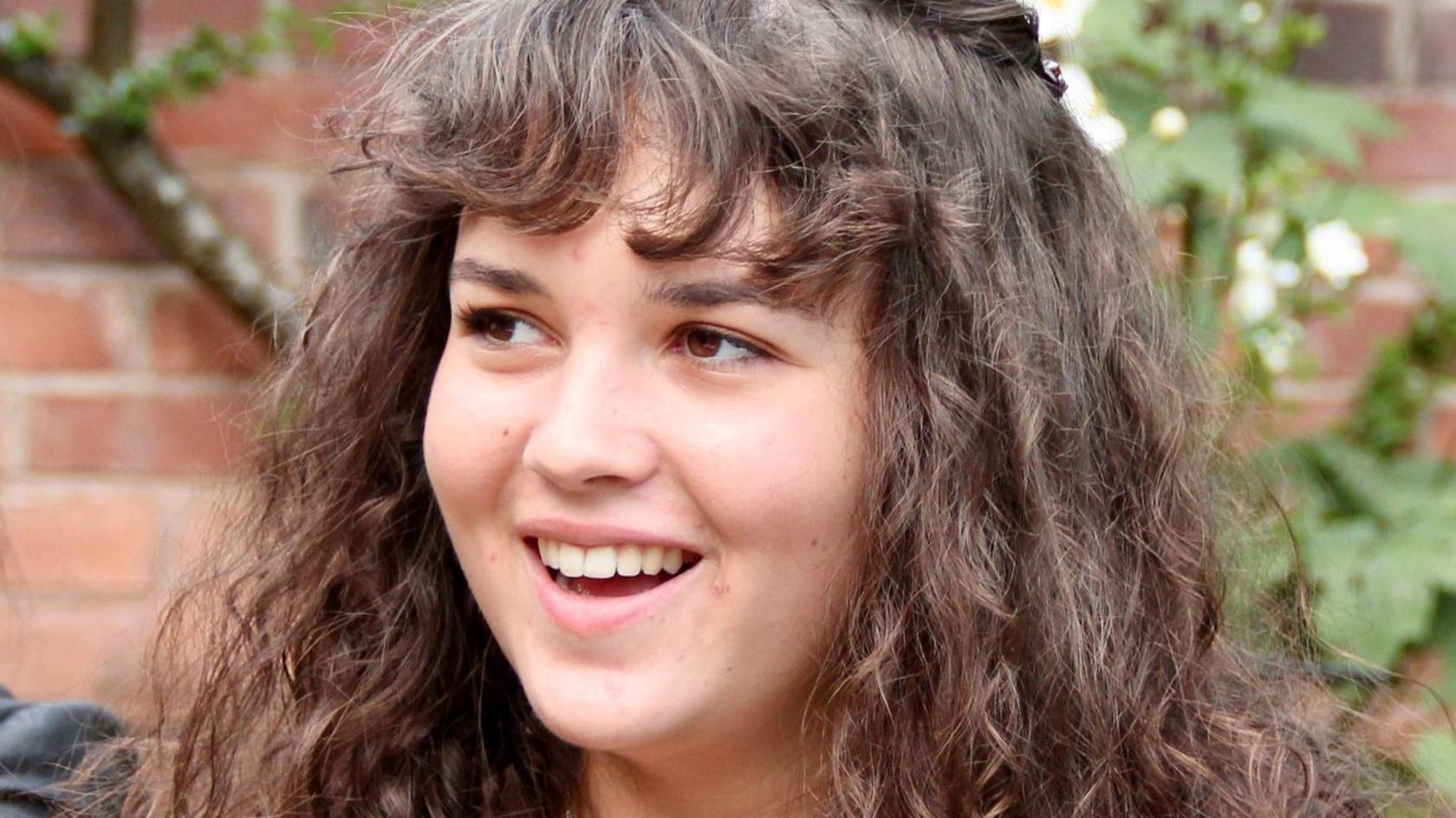Treatment changes urged after ME patient's death

Maeve Boothby-O'Neill had been admitted to hospital three times
- Published
Maeve Boothby-O'Neill, 27, suffered from severe chronic fatigue syndrome for a decade before she died at home in October 2021.
An inquest in Exeter heard she had been admitted to the Royal Devon and Exeter Hospital three times that year for treatment for malnutrition.
The hearing focused on the last few months of her life, by which time she was confined to bed, unable to chew food and had difficulty drinking because she was not able to sit up.
Devon coroner Deborah Archer concluded Miss Boothby-O’Neill had died from natural causes "because of severe myalgic encephalomyelitis (ME)".
"In conclusion there is no known treatment of ME," she said.
"The reality of this case is it is not possible for me to say if any treatment could've halted her decline - I hope lessons will be learned in the hope future deaths can be prevented."

Sarah Boothby called for institutional change in ME care
Dr Lucy Shenton, who cared for Miss Boothby-O'Neill, told the inquest doctors needed more help to treat patients with ME.
"Regarding severe ME, there needs to be more funding and research into ME to provide the evidence and guidelines for clinicians to work from," she said.
"There needs to be somewhere within the NHS providing specialist care for patients with severe ME and an easy mechanism to access that provision."
Miss Boothby-O’Neill's mother, Sarah Boothby, told the inquest her daughter's death was "premature and wholly preventable" as malnutrition in cases of severe ME was "common".
"I believe the evidence shows Maeve is likely to have died from malnutrition and dehydration because she had severe ME," she said.
"I therefore believe her death was both premature and wholly preventable."
After the inquest, Ms Boothby called for "institutional change" in the care of ME patients.
"Unless NHS England takes responsibility for the many other deaths from ME that have gone unrecorded and therefore unreported there will be more," she said.

Maeve Boothby-O’Neill died from malnutrition and dehydration said her mother
Other families told the BBC they lived in fear and were terrified of what could happen to their loved ones with ME.
Rosie Barrett's sister Alice has been living with ME for nearly four years.
Last year, the Royal Devon and Exeter Hospital changed its care plan for Alice after her family campaigned for her to be fed lying down, a deviation from the hospital's usual policy.
It was the same hospital that treated Miss Boothby-O'Neill two years before.
Ms Barrett said: "Because there is no known treatment for ME the unknown of how long she will be this ill or whether she'll make it to recovery is hard.
"I think Maeve's case has increased awareness within the public."
She also said there had been changes in the hospital's operating procedures, "however there is still a very long way to go".
'Acceleration of research'
The inquest heard from medical experts who said there was no specialist unit for ME patients anywhere in the country.
It has highlighted the need for properly funded research and better understanding around the condition.
It also noted some doctors expressed doubt ME has a biological basis, a stigma that some groups are campaigning to change.
Sonya Chowdhury, of Action for ME, said: "We need a tangible pathway of care for people with ME and for people with severe ME, having direct access to experts.
"And we also need to see education and an acceleration of research because one day there will be treatments and that has to happen sooner rather than later."
'Heart-wrenching'
Prof David Strain, from the University of Exeter, said the disease had been "tremendously stigmatised" because there was no diagnostic test.
"The difficulty we still face with ME is because it is unlikely to be a single disease, there is no one diagnostic test," he said.
"That is still a barrier we face today."
A Department of Health and Social Care spokesperson said: "Our deepest sympathies are with Maeve's family and friends in this tragic case.
"This government will ensure that patients receive the care they deserve.
"We are committed to improving the care and support for people with chronic fatigue syndrome (CFS). We recognise how devastating the symptoms of CFS can be, and the significant impact they can have on patients and their families."
'Dismissed her'
Andrew Gwynne, Minister for Public Health and Prevention, said Miss Boothby-O’Neill's case was a "heart-wrenching example of a patient falling through the cracks".
“Maeve and her family were forced to battle the disease alongside the healthcare system which repeatedly misunderstood and dismissed her," he said.
"I am committed to improving the care and support for all those affected, and we intend to publish a final delivery plan this winter which will focus on boosting research, improving attitudes and education, and bettering the lives of people with this debilitating disease."
Adrian Harris, chief medical officer at the Royal Devon University Healthcare NHS Foundation Trust, said "everybody involved in caring for Maeve has been profoundly impacted".
"We have learned from Maeve's case and strengthened the information available to staff caring for patients with severe ME," he said.
"The trust will take time to consider in full the coroner's detailed findings from today and will take forward learning identified once the coroner has heard evidence on the progress made since Maeve's tragic death."
The evidence in relation to the prevention of future deaths is being heard separately and a hearing date is set for 27 September.
Follow BBC Devon on X (formerly Twitter), external, Facebook, external and Instagram, external. Send your story ideas to spotlight@bbc.co.uk, external.
Related topics
- Published1 August 2024

- Published26 July 2024
- Published23 July 2024
